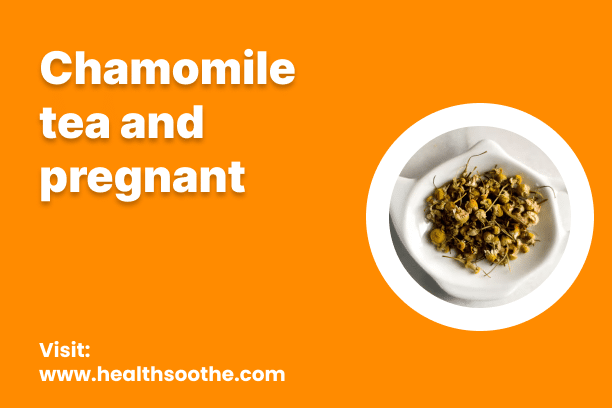Chamomile tea has long been celebrated for its calming and digestive benefits. Expectant mothers often seek natural remedies to ease pregnancy discomforts like nausea, insomnia, or digestive upset. This has sparked a growing interest in is chamomile tea safe for pregnancy, especially given its reputation as a gentle herbal infusion.
While chamomile is commonly consumed for relaxation and even weight management, pregnancy introduces unique considerations. The delicate balance of supporting maternal health and protecting fetal development means that not all herbal teas are safe or advisable during this time. This article explores the science, benefits, and precautions related to chamomile tea consumption throughout pregnancy.

Scientific Overview: Chamomile Tea Components and Their Effects During Pregnancy
Chamomile tea contains several biologically active compounds, including:
-
Flavonoids (Apigenin): Antioxidants with anti-inflammatory and mild sedative effects.
-
Volatile oils (Bisabolol, Chamazulene): Known for anti-inflammatory and calming properties.
-
Natural muscle relaxants: May ease uterine contractions but also raise concerns.
These components can help:
-
Relieve stress and improve sleep: Important for maternal well-being and metabolic regulation.
-
Aid digestion: Chamomile relaxes intestinal muscles, easing bloating and nausea.
-
Potential influence on uterine muscles: Some compounds may stimulate contractions, raising safety concerns.
While these mechanisms can support overall wellness and weight management, their effects during pregnancy are not fully understood, warranting careful use.
Research and Evidence: What Studies Reveal About Chamomile Tea and Pregnancy Safety
-
Human Observational Studies: Limited data suggest that moderate chamomile consumption (1–2 cups daily) is generally well tolerated during pregnancy. However, high doses or supplements may increase miscarriage risk due to uterine stimulation.
-
Animal Studies: Chamomile extracts have shown potential uterine stimulation in animal models, indicating caution.
-
Systematic Reviews: A 2020 review concluded insufficient evidence exists to confirm safety or risk, recommending pregnant women avoid chamomile unless advised by a healthcare professional.
In summary, scientific consensus currently leans toward cautious, limited use of chamomile tea in pregnancy rather than unrestricted consumption.
Practical Consumption Guidelines: How to Safely Include Chamomile Tea During Pregnancy
For pregnant women considering chamomile tea, the following guidelines help balance benefits and risks:
Recommended Usage
-
Limit intake to 1 cup per day, preferably after the first trimester.
-
Avoid chamomile supplements or high-dose extracts.
-
Use loose dried flowers or tea bags from reputable sources.
-
Steep for 5 minutes in hot water, strain, and consume warm.
Recipe Ideas
-
Basic Chamomile Tea:
-
1 tsp dried chamomile flowers
-
8 oz boiling water
-
Steep 5 minutes, strain, optionally add honey or lemon.
-
-
Chamomile and Ginger Soother:
-
1 tsp chamomile flowers
-
1 slice fresh ginger
-
Boil water, steep both ingredients for 5-7 minutes.
-
-
Chamomile Detox Water:
-
Brew chamomile tea and cool.
-
Add cucumber slices and mint leaves.
-
Serve chilled for a refreshing drink.
-
Potential Benefits of Chamomile Tea During Pregnancy
When consumed responsibly, chamomile tea may offer:
-
Stress and anxiety reduction: Calming effect supports emotional balance.
-
Improved sleep quality: Helps combat pregnancy-related insomnia.
-
Digestive relief: Eases nausea, bloating, and indigestion.
-
Mild anti-inflammatory effects: May support overall maternal wellness.
While chamomile’s direct impact on weight loss during pregnancy is minimal, better sleep and digestion can indirectly support healthy metabolism.
Important Precautions and Best Practices
-
First Trimester Caution: Avoid chamomile in early pregnancy due to higher miscarriage risk potential.
-
Allergies: Avoid if allergic to ragweed, daisies, marigolds, or chrysanthemums.
-
Medication Interactions: Chamomile can interact with blood thinners and sedatives.
-
Consult Healthcare Providers: Always discuss herbal tea use with your obstetrician or midwife.
-
Moderation is Key: Excessive intake may lead to uterine contractions or allergic reactions.
Complementary Healthy Pregnancy Practices
-
Combine chamomile tea with balanced nutrition rich in fruits, vegetables, and lean proteins.
-
Engage in regular, gentle physical activity like walking or prenatal yoga.
-
Prioritize hydration with safe fluids including water, safe herbal teas, and milk.
-
Use stress management techniques such as meditation, breathing exercises, and adequate rest.
FAQs About Chamomile Tea and Pregnancy
1. Is chamomile tea safe during the first trimester?
Generally, it is best avoided in the first trimester due to a possible risk of miscarriage from uterine stimulation.
2. How many cups of chamomile tea can I drink while pregnant?
Limit to 1 cup per day, preferably after the first trimester, unless advised otherwise by your healthcare provider.
3. Can chamomile tea induce labor?
There is no strong scientific evidence that chamomile induces labor, but excessive intake may stimulate uterine contractions.
4. Are there alternatives to chamomile tea during pregnancy?
Safe options include ginger tea for nausea, peppermint tea for digestion, and rooibos tea, which is caffeine-free.
5. Can I take chamomile supplements during pregnancy?
Chamomile supplements are generally not recommended during pregnancy due to higher concentrations of active compounds.
6. What should I do if I experience allergic reactions?
Stop consumption immediately and seek medical advice if you develop rash, itching, or swelling.
7. Does chamomile tea help with pregnancy weight management?
Indirectly, by improving sleep and digestion, but it is not a direct weight loss solution during pregnancy.
Conclusion: Balanced Perspective on Chamomile Tea Safety in Pregnancy
The question “is chamomile tea safe for pregnancy” does not have a simple yes or no answer. While moderate consumption after the first trimester may be safe and beneficial for some women, potential risks, especially in early pregnancy, should not be overlooked.
Expecting mothers should prioritize safety, consult healthcare professionals, and practice moderation. When used thoughtfully, chamomile tea can be a comforting, gentle addition to a healthy pregnancy routine.
Always listen to your body and err on the side of caution to ensure both your well-being and your baby’s.